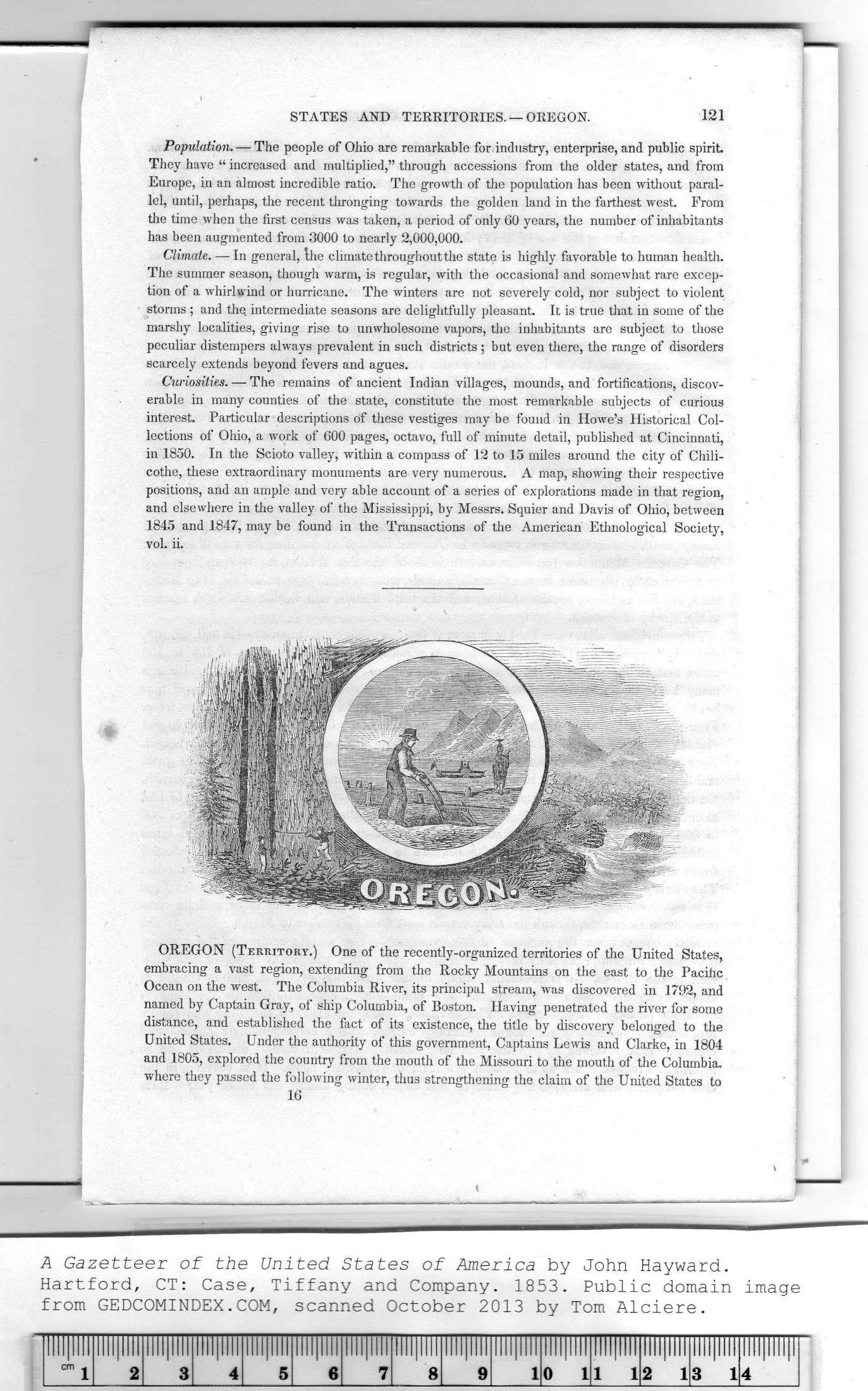|
|
Note: Ctrl and + increases the font size of the text below, Ctrl and - decreases it, and Ctrl and 0 resets it to default size.
STATES AND TERRITORIES. — OREGON. 121
Population. — The people of Ohio are remarkable for industry, enterprise, and public spirit.
They have “ increased and multiplied," through accessions from the older states, and from
Europe, in an almost incredible ratio. The growth of the population has been without paral-
lel, until, perhaps, the recent thronging towards the golden land in the farthest west. From
the time when the first census was taken, a period of only 60 years, the number of inhabitants
has been augmented from 3000 to nearly 2,000,000.
Climate. — In general, the climate throughout the state is highly favorable to human health.
The summer season, though warm, is regular, with the occasional and somewhat rare excep-
tion of a whirlwind or hurricane. The winters are not severely cold, nor subject to violent
storms ; and thp intermediate seasons are delightfully pleasant. It is true that in some of the
marshy localities, giving rise to unwholesome vapors, the inhabitants are subject to those
peculiar distempers always prevalent in such districts ; but even there, the range of disorders
scarcely extends beyond fevers and agues.
Curiosities. — The remains of ancient Indian villages, mounds, and fortifications, discov-
erable in many counties of the state, constitute the most remarkable subjects of curious
interest. Particular descriptions of these vestiges may be found in Howe's Historical Col-
lections of Ohio, a work of 600 pages, octavo, full of minute detail, published at Cincinnati,
in 1850. In the Scioto valley, within a compass of 12 to 15 miles around the city of Chili-
cothe, these extraordinary monuments are very numerous. A map, showing their respective
positions, and an ample and very able account of a series of explorations made in that region,
and elsewhere in the valley of the Mississippi, by Messrs. Squier and Davis of Ohio, between
1845 and 1847, may be found in the Transactions of the American Ethnological Society,
vol. ii.
OREGON (Territory.) One of the recently-organized territories of the United States,
embracing a vast region, extending from the Rocky Mountains on the east to the Pacific
Ocean on the west. The Columbia River, its principal stream, was discovered in 1792, and
named by Captain Gray, of ship Columbia, of Boston. Having penetrated the river for some
distance, and established the fact of its existence, the title by discovery belonged to the
United States. Under the authority of this government, Captains Lewis and Clarke, in 1804
and 1805, explored the country from the mouth of the Missouri to the mouth of the Columbia,
where they passed the following winter, thus strengthening the claim of the United States to
16
|
